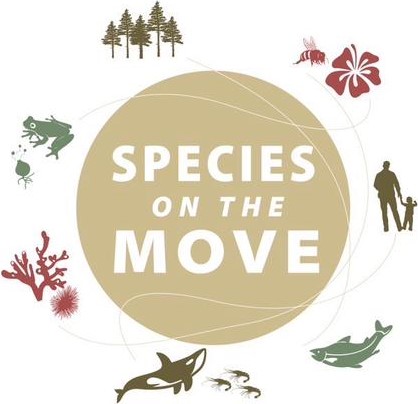I. Phenomena & Responses
1. Reshaping Biodiversity Landscapes and Seascapes: Spatial Patterns from Species to Ecosystems Species on the move create dynamic biogeographic patterns through range shifts, expansions, and local extinctions. This session invites studies revealing how taxonomic, functional, and phylogenetic changes cascade from species distributions to community assemblages and ecosystem boundaries, reshaping biodiversity patterns from local to global scales.
2. Temporal Dynamics and Ecosystem Transitions Ecological systems are transforming through time as species redistribute, creating temporal mismatches and triggering system-wide changes. We welcome research on phenological shifts, seasonal timing disruptions, and threshold-driven transitions—including tipping points and regime shifts—that alter ecosystem structure and function across temporal scales.
3. Tracking Change: Technologies, Open Science, and Predictive Systems Innovations in remote sensing, AI, eDNA, and citizen science are revolutionizing how we detect and forecast species redistribution. This session highlights advanced monitoring tools, open data platforms, and predictive frameworks that enhance early warning capabilities and public engagement in biodiversity change.
II. Mechanisms
4. Biotic Interactions in a Changing Climate Species redistribution alters ecological networks, shifting competition, predation, mutualism, and disease dynamics across landscapes. We invite contributions on how interaction changes reshape community assembly, ecosystem functioning, and species coexistence, with particular attention to cascading effects, network disruptions, and emerging zoonotic risks.
5. Mechanisms of Adaptation: Genes, Evolution, and Behavior Species respond to environmental change through genetic adaptation, evolutionary shifts, and behavioral or other plasticity—or experience maladaptation and local extinction. This theme explores the eco-evolutionary mechanisms shaping range dynamics and persistence under climate change, integrating insights from genomics, physiology, and population ecology.
III. Societal Impacts & Transformative Responses
6. Human Wellbeing, Cultural Values, and Economic Consequences Species movements impact human communities through disrupted ecosystem services, altered livelihoods, transformed cultural relationships, and health implications. This session explores social, economic, and place-based responses to ecological change, emphasizing equity, justice, indigenous knowledge, and diverse stakeholder perspectives in adaptation strategies.
7. Policy Pathways and Conservation Strategies for a Moving Biosphere Addressing species redistribution requires coordinated governance and adaptive conservation approaches. We invite contributions on dynamic protected areas, assisted migration, landscape connectivity planning, legal issues, and other institutional innovations that align local conservation actions with Global Biodiversity Framework targets and measurable nature-positive outcomes.
**Cross-theme roundtable discussions will be held to integrate insights and inspire new collaborations—your voice is welcome in shaping these conversations.
